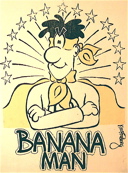One of the high schools in this area requires all seniors to complete a senior project on a topic of their choice. The project includes a written research paper, an oral presentation, and 15 hours of work with a mentor. This year, one senior asked me to be his mentor for his senior project on world religions.
This particular high school senior is fun to work with — he has a flexible and curious intellect, is willing to push himself, and is open to new ideas. Tonight we determined that he takes an essentialist approach to religion while I take a functionalist approach, and then we talked about the phenomenological approach to studying religion. In the course of all this we started on some basic scholarly skills like learning how to underline in books, how to ask critical questions while reading, how to hold a different opinion than the author or one’s mentor, and how to look for the internal structure and unspoken assumptions of a piece of writing.
I realized that what I was really doing was introducing him to the intellectual tradition in which I was originally trained, an Americanized version of critical theory. I also realized that I’m taking on the role of one of my primary intellectual mentors, Lou Outlaw — even down to not worrying about whether the student agrees with me, and instead worrying that they understand and find a new perspective on the world.
All of which got me remembering my own mentor, and reflecting on how I’m passing on this tradition to another generation, in my own way. One result of this reflection was a quick Web search, which led me to this thoughtful video interview with Lou Outlaw. My favorite bit in the video [at about 11:30] is when Lou says: “This is ludicrous. What do you mean you don’t criticize socialism? Criticism is central to the management of social, political, democratic life. You gotta have criticism.”
Which pretty much sums up the intellectual tradition that I’m now trying to pass on to the next generation, even though I’m now doing theology instead of political philosophy.

